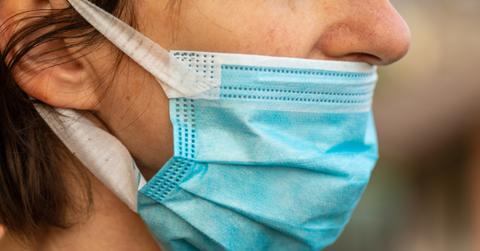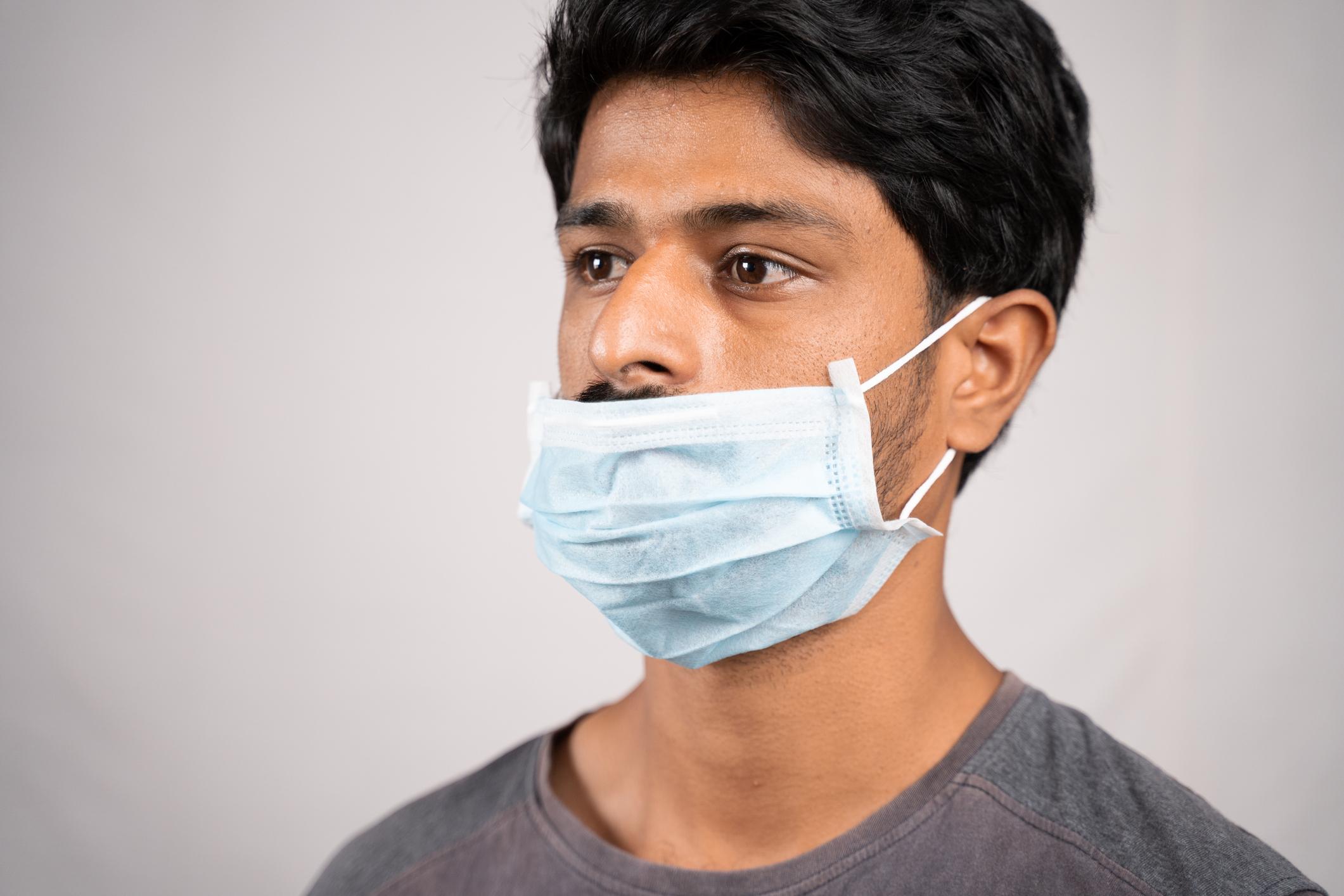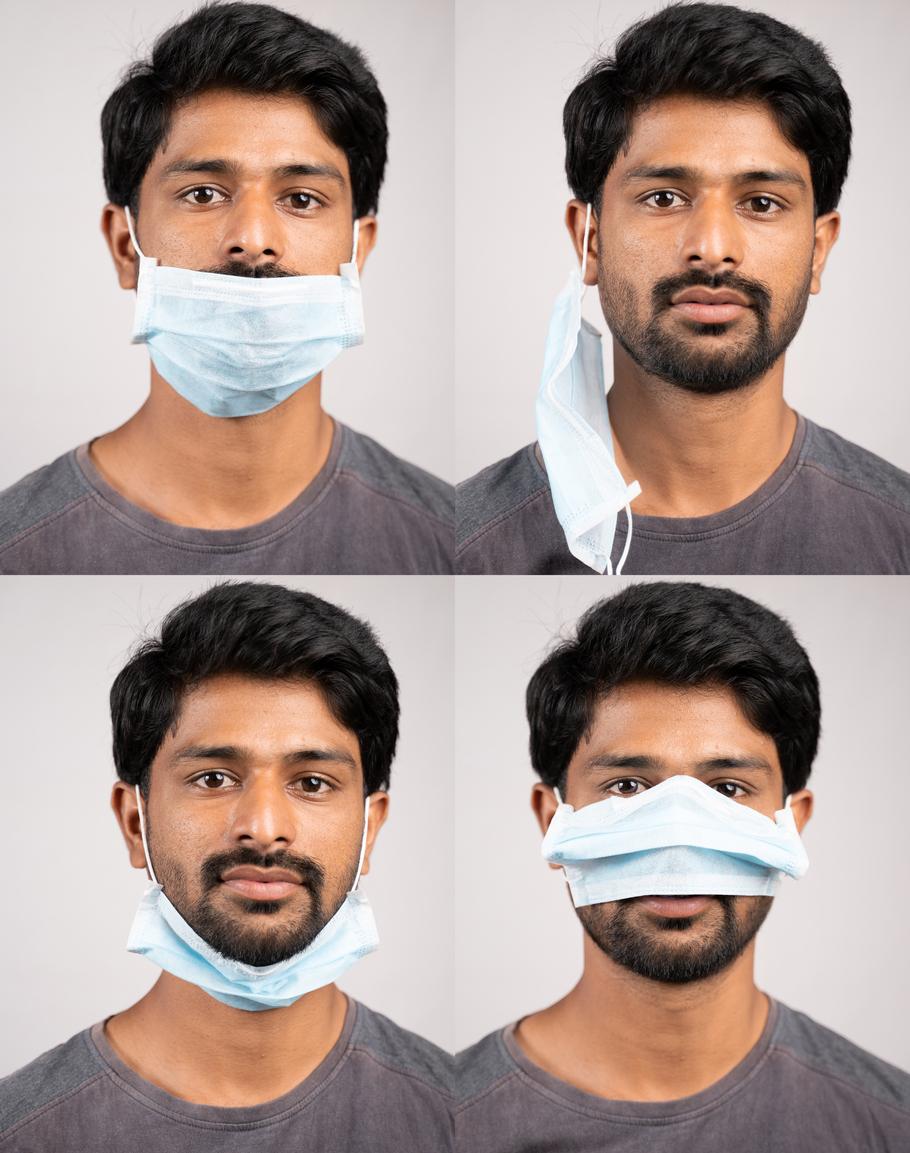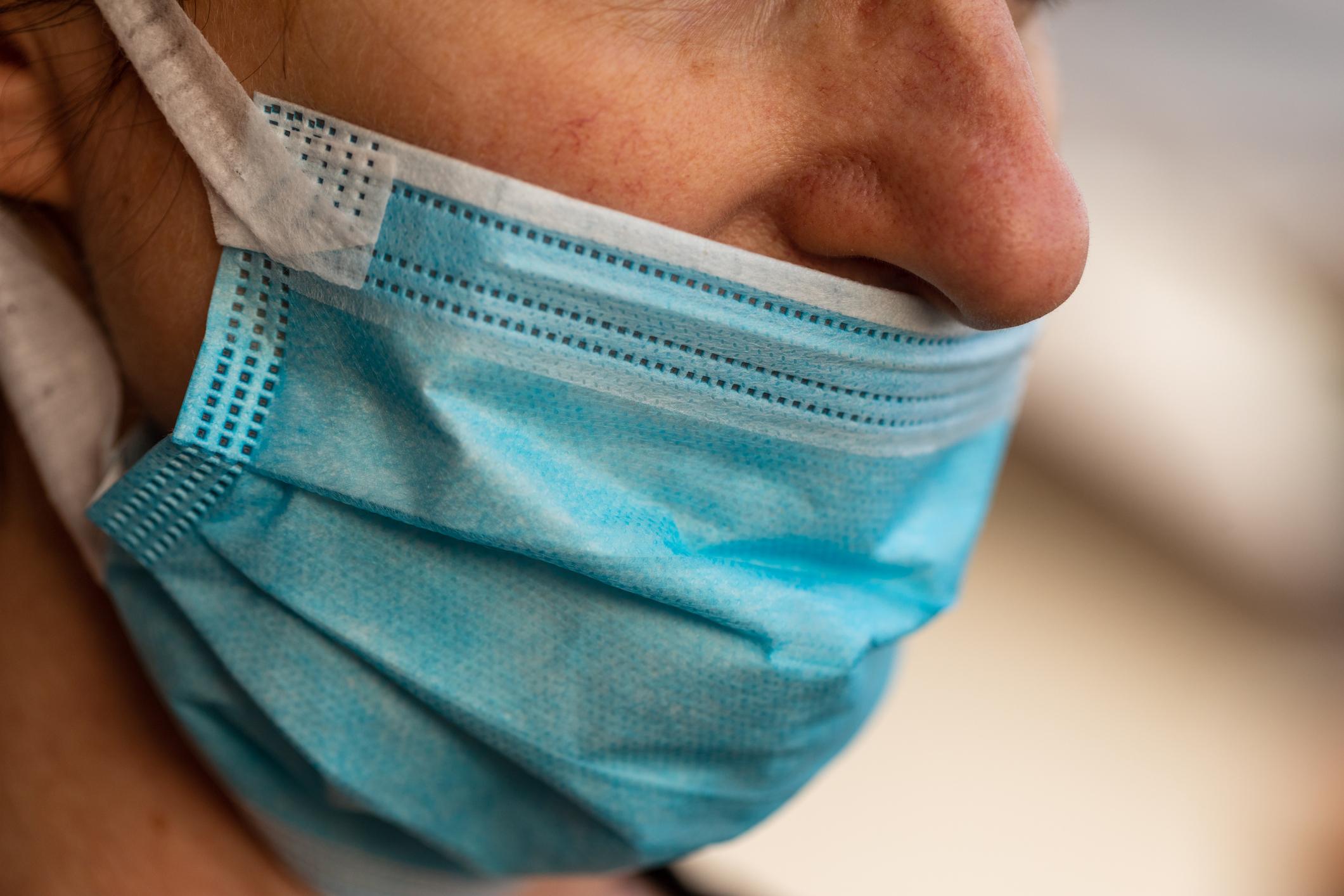If You Wear a Mask Under Your Nose, You Might as Well Not Be Wearing One at All
Updated Sept. 30 2020, 1:54 p.m. ET

We all know by now that wearing a face mask can help prevent COVID-19 from spreading. But a key point we have to emphasize is that you have to wear the mask properly in order for it to work.
It's not going to work if you take it off to eat, or if you're walking around with it dangling off your ear. Similarly, experts say, if you wear a mask under your nose, that's pretty much equivalent to wearing no mask at all.

As people have been venturing out into the world more and getting laxer about these safety precautions, more and more people are wearing masks improperly. Colin Furness, an infection control epidemiologist at the University of Toronto, told Global News, "I see it everywhere.
"I see it in grovery stores... I tend to see it, actually, [with] people wearing their masks outside." It's gotten to the point where people joke about those who can't seem to put the mask over their nose. It's not hard. You will be able to breathe. And yet, some people just can't seem to follow the rules.
And it may be at the expense of their own and everyone else's safety. Furness said, "If someone's got their nose peeking out, it's really no different than not wearing a mask."

We know that masks work to curb the spread of the virus. When worn over the nose and mouth, they effectively reduce the amount of viral load a person infected with the coronavirus will send out into the air. For a person who's not infected, wearing a mask can reduce the amount of the virus they breathe in.
The less virus you breathe in, the less sick you'll get. Wearing a mask might even help people develop immunity to the virus because the amount of virus they inhale while wearing a mask might be so low that they don't develop symptoms but do fight the virus successfully and create antibodies.
But none of this is possible if people don't wear masks properly. This means that masks have to be tightly fitted over the face, and they must, must, must cover your nose and mouth. Without those two components, the mask will not be able to do its job.
The WHO guidelines are clear that masks must "cover your mouth, nose, and chin, leaving no gaps on the sides." So whether you're inside or outside, you should wear a mask properly at all times.

Tim Sly, an epidemiologist and professor emeritus at Ryerson University said that wearing a mask under your nose and only semi-following procedures of self-protection "serves no purpose at all." He says it's basically "going through the motions," but that it won't actually help you in any way.
Sly emphasizes that because many COVID-19 cases are asymptomatic, it's impossible to know who out there has the virus and who doesn't. "There's no other pathogen that we know of that's essentially hidden. You and I don't know who's got the virus out there ... and who doesn't have it."
The best possible thing we can do to make sure we don't spread the virus or contract it is to stay home and keep socially distant from others. The next best thing we can do is wear a mask. Over our noses.